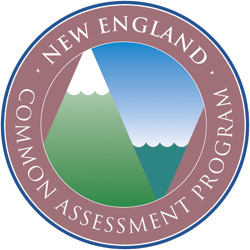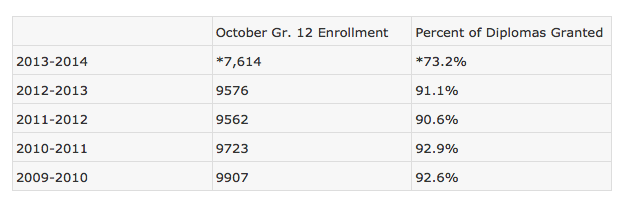 “Let the revolution continue,” Jill Stein, Green Party candidate for president, told RI Future in an exclusive interview yesterday, hours after Bernie Sanders conceded defeat in campaigning for Hillary Clinton in Portsmouth, New Hampshire.
“Let the revolution continue,” Jill Stein, Green Party candidate for president, told RI Future in an exclusive interview yesterday, hours after Bernie Sanders conceded defeat in campaigning for Hillary Clinton in Portsmouth, New Hampshire.
“We are Plan B for Bernie,” she said, “As Bernie himself said, it’s a movement, not a man!”
Stein, who will be in Rhode Island on July 20, explained, “The 99 percent is being thrown under the bus by Democrats as well as Republicans. That’s not to say there’s no difference but the differences are not enough to save your job, to save your life, or to save the planet. People growing up today see two parties that have bailed out Wall Street, including a Democratic White House with two Democratic houses of Congress. The two parties, including the Democrats, led the way on the bail-outs for Wall Street, the offshoring of our jobs, and again, thank you to Barack Obama and Bill Clinton leading the charge on the rigged corporate trade agreements, the expanding wars, the attack on immigrant rights, the massive prison-industrial complex and the militarization of our police. For young people looking at this world today it’s not working for them,” she said.
“So, Bernie’s campaign,” she added, “we owe them a great debt of gratitude for standing up and showing how the American people are ready to mobilize and say ‘let’s keep this going, let’s bring that energy and that momentum into our campaign. We deserve a future where we’re calling the shots, where we’re in charge, we are the 99 percent, we are the majority, and Bernie’s campaign showed that there can be majority support for this kind of campaign.” Stein is adamant that, if every student debtor alone in America were to vote for her, the only candidate who is promising student loan forgiveness for all borrowers via executive action, she would have a plurality and win the election.
A medical doctor by trade and a resident of nearby Lexington, Massachusetts, Stein was 18 and raised in Highland Park, Illinois, less than 30 miles away from the site of the infamous 1968 Democratic National Convention in Chicago that broke down into street riots, something some Baby Boomers have told me they are getting reminded of quite often this week.
“In the events of the last week, between the police murders in St. Paul, in Baton Rouge,” she said, “and then the assassinations of five police in Dallas, and then the revelations of yet another police murder in New York, it’s really I think forced us to stop and really feel the moment here, that we cannot go on like this. This is just a devastating, heartbreaking tragedy, especially to have seen these videos up close and personal.”
She added, “We really need to look at the roots of this disaster, we had both racism playing out and then we had blowback against racism in the shooting of the Dallas police, so we’re all kind of in the crossfire right now of this crisis of racism. And racism and violence really go hand in hand. We’ve got to deal with them both in order to deal with either one of them. So we call for a Truth and Reconciliation Commission to understand the origins of this ongoing problem of police violence. It’s roots are in racism that you can trace back to the institution of slavery. Out of slavery, the Emancipation Proclamation didn’t put an end to it, then it was lynching, then it was Jim Crow, then it was segregation and red-lining and deficient schools and the War on Drugs and the prison system and then it was police violence.”
The idea of a Truth and Reconciliation Commission is based on a system that was created after the election of Nelson Mandela in South Africa to confront the deep wounds caused by the apartheid system.
“There’s a history here that we really have to come to terms with,” she explained. “We need to have less reliance on weapons. We need to take a look at police forces around the world that in fact have done away with their weapons.” She goes on to explain “It’s actually police forces that are far safer when they’re not armed because so much of the shooting is defensive and it’s out of fear. So actually police turn out to be far safer when they are not armed as well.”
Stein has previously run for a variety of offices on the Green Party ticket, including its 2012 presidential candidate. She also ran for governor of Massachusetts in 2002 and 2010. She served as member of the Lexington Town Meeting from 2005-2011.
Her medical practice began with internal medicine before it very quickly spurred her towards environmental activism, writing reports titled In Harm’s Way: Toxic Threats to Child Development and Environmental Threats to Healthy Aging. She has worked alongside Clean Water Action, Toxic Action Center, Global Climate Convergence, Physicians for a National Health Program, and Massachusetts Medical Society while co-founding the Massachusetts Coalition for Healthy Communities. Yet this did not stop her from developing a side-project as vocalist in a folk-rock band called Somebody’s Sister.
Listen to the full interview:
Stein wants to get rid of Common Core and all corporate education deform efforts that bust teacher unions.
“The problem here is that our education system has been bought out again by the highest bidder and that includes the likes of Bill Gates and Arne Duncan, who’s not an educator but is a basketball player, so we have an education system that’s kind of been held hostage by non-educators who are applying really a business model to education,” she told me. “So we really need to put educators back in charge of our school system and of our education. That means having small classroom sizes, it means having well-paid teachers, respecting teachers unions as being critical for high-quality education. And it means doing away with the high-stakes testing which has been used as an excuse to beat up on teachers, to attack teachers unions, and to privatize our schools and to declare them failing.”
One of the major electoral forces in Rhode Island is the union movement. Right now a growth industry in Rhode Island is developing around the construction of wind farms to generate electricity. We quickly get into a conversation about her jobs program called the Green New Deal.
“The Green New Deal would mean an explosion of jobs,” Stein told me. “The Green New Deal would basically create 20,000,000 jobs. And that’s enough jobs to give everyone a full-time, good-waged job transforming our economy on an emergency basis to a sustainable and healthy economy that’s good for workers, that’s good for communities, good for our water supply, our air, and our food and all that. So it’s kind of a transformational package. It’s based on the New Deal that got us out of the Great Depression but in this case it not only solves the economic emergency, which we definitely have, in spite of what they say, we have an economic emergency for millions upon millions of workers who are not represented because they are not actively looking for work, they’re discouraged, or they’ve been forced into part-time work so we don’t see this invisible epidemic of joblessness and under-employment. We need a lot of jobs. We have an economic emergency and we can solve it at the same time we can solve our climate and environmental emergency. So specifically we call for jobs that will green our energy system, that is build wind, water, and sun energy, that will transform our transportation and will create light-rail as well as high-speed rail and restore our bridges and the infrastructure for transportation. And we call also for a healthy and sustainable food system that makes people healthy as well as the planet. And overall it will revive the economy, it will turn the tide on climate change, and it will make wars for oil obsolete. We don’t need to be fighting wars for oil when we have 100% renewable energy right here at home and that’s part of how we fund this. It also funds itself because we get much healthier by getting rid of the pollution and also frankly the dangerous jobs that make people sick. Workers especially pay the price here for a dangerous and toxic energy system where workers are really on the front lines actually have a seven-fold, that is 700% increased risk of dying on the job!”
Stein’s program is a job program, meaning it pays to re-train labor and promises them steady work.
“Workers have been forced into this position of hoping for, begging for job training and then hoping that the right job will come along,” she said. “Well this is a series of basically guaranteed jobs. And they are a combination of independent businesses, and these are largely local businesses so that the profits aren’t going overseas and into corporate pockets. Instead those profits get re-circulated within the communities and help to build a truly healthy economy. So we’re talking about small businesses, about worker cooperatives, and also direct government jobs. And the decisions are made by the community… So for many communities that need housing, that really have a housing emergency, one of the key priorities is actually housing because we’re looking at making communities sustainable, not only economically and environmentally but also sustainable socially. So if housing is the need the community most urgently wants to fill, those are the jobs that are created. It’s nationally funded but locally controlled in order to meet the needs of everyday people and it focuses people’s needs rather than big corporations or the billionaires because this is a one person-one vote process through something called participatory budgeting that actually allows communities to decide without being bought out by the big developers who have a way of buying their way into the decisions that benefit them but leave the communities without the housing we need or the transportation we need or the affordable and healthy energy supply.”
Now the choice lies in the hands of the voters. Stein will be visiting the Ocean State later this month, an event we will be bringing you coverage and updates on as they emerge.
To volunteer with the Stein campaign, e-mail the Rhode Island Green Party at StateCommittee@rigreens.org! And be sure to ask about signing a petition for your town to get Dr. Stein on the ballot!


















 This month, Diane Ravitch gave a speech to the annual meeting of the Modern Language Association in which she laid out a comprehensive analysis of the Common Core. Ravitch gets a bad rap for being polemical, but this piece is far from a polemic – it’s a straightforward analysis from her perspective. (By the way, Ravitch’s speech was originally designed as a debate between Ravitch and David Coleman, the lead architect and cheerleader for the Common Core, but he backed out).
This month, Diane Ravitch gave a speech to the annual meeting of the Modern Language Association in which she laid out a comprehensive analysis of the Common Core. Ravitch gets a bad rap for being polemical, but this piece is far from a polemic – it’s a straightforward analysis from her perspective. (By the way, Ravitch’s speech was originally designed as a debate between Ravitch and David Coleman, the lead architect and cheerleader for the Common Core, but he backed out).

